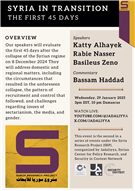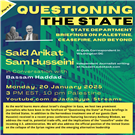The international public has so far been oblivious to the so-called “KCK operations” carried out in Turkey by Prime Minister Erdogan and his Justice and Development Party for the past two years. Under the guise of “fighting terrorism,” the Erdogan government has been using the judiciary, the police, and the media to penalize all civic activism in support of rights demanded by Kurdish citizens in Turkey. The “KCK operations” in particular have been deployed to spread fear amongst activists, to silence public dissent, and to normalize the arbitrary arrest of citizens. Ironically, the Erdogan government’s suppression of dissent and of democratic politics has visibly intensified at a time when “Turkish democracy” is being hailed as a model for the Arab world.
Since 2009, as many as 7748 people have been taken under custody on the alleged grounds that they are associated with the KCK—an organization claimed to be the urban branch of the armed organization known as the PKK (Kurdistan Workers’ Party)—while 3895 people have been arrested and imprisoned without even the prospect of a trial in the foreseeable future. Elected mayors, public intellectuals, members of civic associations, journalists, university students, researchers, academics, and activists have all been undergoing this heavy-handed treatment.
One of the latest victims of the Erdogan government’s assault on public dissent is Professor Busra Ersanli of Marmara University, a highly respected academic. Her only apparent “crime” is to have played an active role within BDP (Peace and Democracy Party), which has been struggling for the rights of Kurdish citizens in Turkey. The members of this party have been systematically targeted by counterterrorism units’ arbitrary arrests, even as the party currently holds seats in the parliament. Professor Ersanli was to attend a conference on “Controversial Issues in the History of the Turkish Republic” at Istanbul Bilgi University on 29 October 2011, but she was taken under custody on 28 October. On the same day, Ragıp Zarakolu—a founding member of the Human Rights Association and the former chair of the “Writers in Prison Committee” of the International PEN organization in Turkey—was also taken under custody within the framework of the “KCK operations.”
Earlier in October 2011, Ayse Berktay (Hacimirzaoglu)—a renowned translator, researcher, and global peace and justice activist—was taken by the police from her home in Istanbul five o’clock in the morning and subsequently arrested. She still remains imprisoned for the foreseeable future. Professor Busra Ersanli, Ragip Zarakolu, and Ayse Berktay are among thousands of people who have been imprisoned and silenced in the last two years.
Under such political conditions that are only getting worse, it has become an urgent task to unmask the arbitrary and authoritarian character of the Turkish government`s handling of the Kurdish issue. We are calling on friends abroad to spread the news and to build international pressure, which has become especially crucial and urgent at this time when any citizen of Turkey could be targeted by the Erdogan government, the judiciary, and the police for engaging in political acts of solidarity with those detained under the “KCK operations.”
Peace can never be achieved under the current conditions of public fear, paranoia, and authoritarian politics. Please sign the petition below to put pressure on the Turkish government to immediately release all those who have been taken under custody as part of the “KCK operations” and to demand that Prime Minister Erdogan’s government make a sincere commitment to ending its suppression of civic efforts in support of rights demanded by Kurdish citizens in Turkey.
[Click here to sign the petition.]
[Click here to read/watch a Jadaliyaa interview on Turkish politics and Kurdish rights.]
![[Map of Turkey. Image from lonelyplanet.com]](https://kms.jadaliyya.com/Images/357x383xo/map_of_turkey.jpg)
















